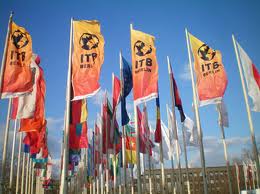Prof. Greg Richards, President of IGCAT, attended the recent ITB tourism fair in Berlin where there was plenty of evidence of the growing convergence between gastronomy, culture and tourism. A vast number of national and regional tourism stands were offering gastronomy-related tourism products (and many were of course also handing out samples of the local gastronomy as an incentive).
In particular South Korea seems to have grasped the convergence trend firmly. The guide they have produced to Korean Cuisine: Refresh your senses gives a succinct and mouthwatering introduction to Korean food, culture and creative tourism. It explains the philosophy behind Korean food, including the principles of ‘food harmony’ and the use of fermentation to produce ‘good bacteria’. For those wanting to find out more first hand, the book also outlines some of the options for food-related creative tourism in Korea, including cooking classes and the Templestay programme. South Korea has been a leader in the development of creative gastronomic and tourism concepts for a number of years, as pointed out in the report on Food and the Tourism Experience, edited by Diane Dodd.
The ITB exhibition also saw the European Travel Commission and the Council of Europe’s Cultural Routes Programme coming together to present cultural routes related to food as well as the ETC’s Tasting Europe portal for gastronomy events and routes throughout Europe. As reported by IGCAT last month, this portal was launched at a conference in Brussels, even though the portal was not actually up and running. Now, however, it seems that this problem has been solved, and you can browse gastronomic events and routes by country, region and type of food.
At national and regional level, however, efforts to develop gastronomic experiences for tourists remain fragmented and often without apparent direction. A good example at ITB was the Medeat Project, combining gastronomy products in Greece, Cyprus, Italy and Portugal. Other than the basic requirement of having enough different countries to qualify for EU funding, there seems little logic to this combination.
10 March 2014
